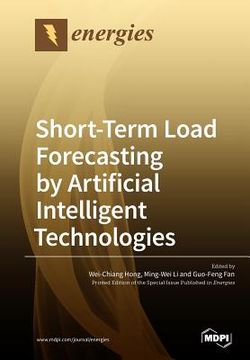Synopsis "Short-Term Load Forecasting by Artificial Intelligent Technologies"
In last few decades, short-term load forecasting (STLF) has been one of the most important research issues for achieving higher efficiency and reliability in power system operation, to facilitate the minimization of its operation cost by providing accurate input to day-ahead scheduling, contingency analysis, load flow analysis, planning, and maintenance of power systems. There are lots of forecasting models proposed for STLF, including traditional statistical models (such as ARIMA, SARIMA, ARMAX, multi-variate regression, Kalman filter, exponential smoothing, and so on) and artificial-intelligence-based models (such as artificial neural networks (ANNs), knowledge-based expert systems, fuzzy theory and fuzzy inference systems, evolutionary computation models, support vector regression, and so on).Recently, due to the great development of evolutionary algorithms (EA) and novel computing concepts (e.g., quantum computing concepts, chaotic mapping functions, and cloud mapping process, and so on), many advanced hybrids with those artificial-intelligence-based models are also proposed to achieve satisfactory forecasting accuracy levels. In addition, combining some superior mechanisms with an existing model could empower that model to solve problems it could not deal with before; for example, the seasonal mechanism from the ARIMA model is a good component to be combined with any forecasting models to help them to deal with seasonal problems.

